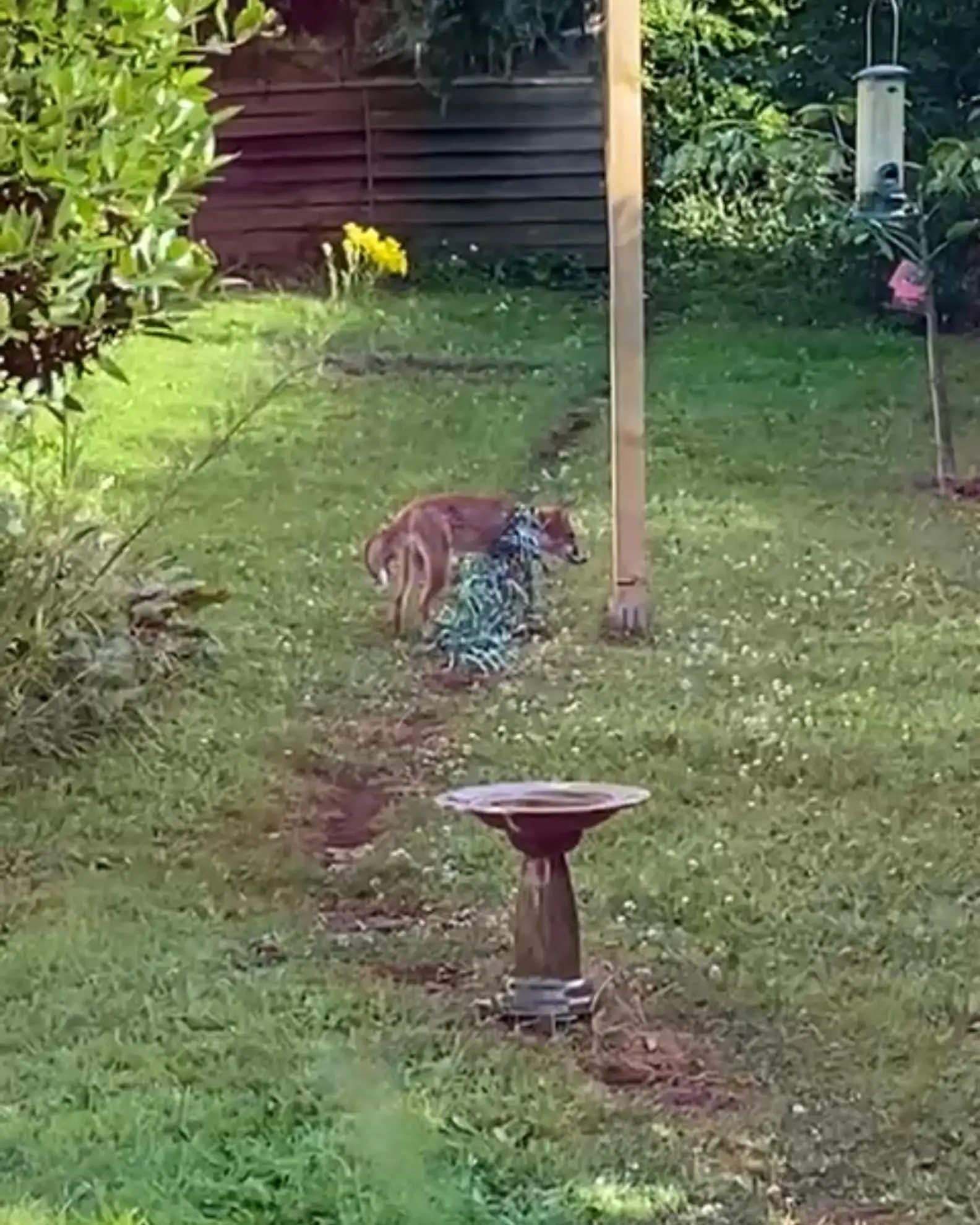He was in immediate danger 😰
Earlier this summer, a homeowner in the UK made a worrying discovery while reviewing footage from their security camera. A juvenile red fox had wandered into their backyard, but something was noticeably wrong—there was a strange green material wrapped around the young animal’s neck. While foxes are a common sight in England, this one was in trouble. The Wildlife Aid Foundation (WAF), one of the country’s largest rescue, rehabilitation, and release centers, was alerted and quickly identified the green material as a plastic sports net. Unfortunately, this wasn’t the first time a young fox had become entangled in such hazardous debris.
“Dispersal season brings significant dangers to young wildlife as they venture into unfamiliar areas, search for new homes, and face the many threats of the modern world,” WAF explained in a Facebook post. “This juvenile fox likely didn’t expect to get caught in plastic netting when he began his innocent journey to find a place to call home.”
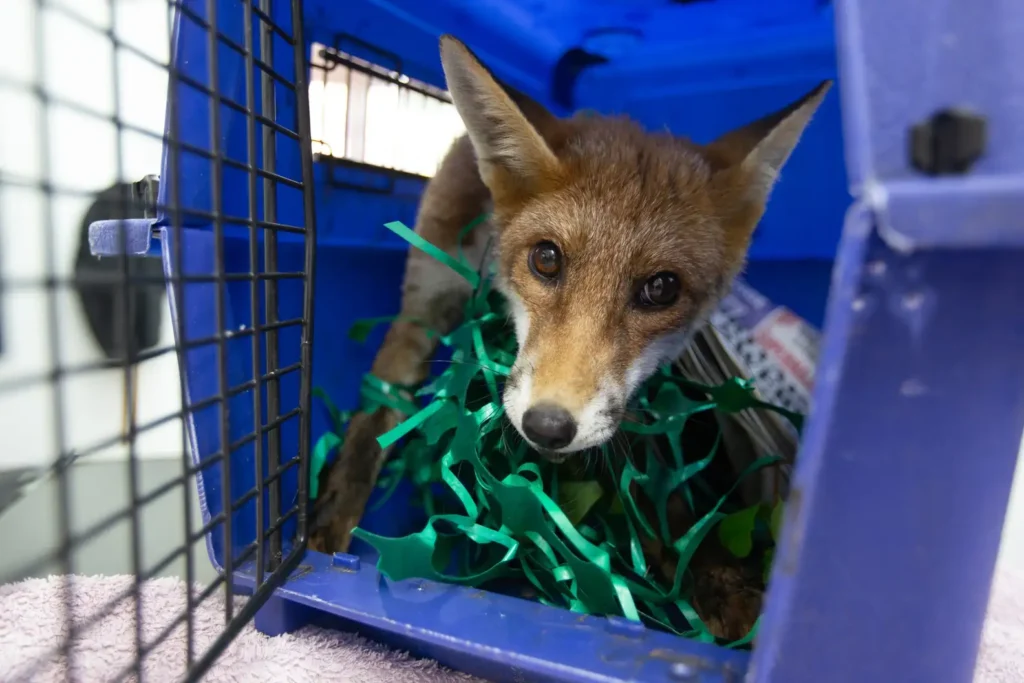
In response, one of WAF’s experienced rescuers, Mike, was dispatched to locate the distressed cub. Despite the young fox’s best efforts to evade capture, Mike remained determined. After a challenging search, the fox eventually wandered into a safe trap, allowing Mike to remove the dangerous netting and ensure the animal’s well-being. The successful rescue underscored the ongoing risks that plastic waste poses to wildlife, especially during key times like dispersal season.
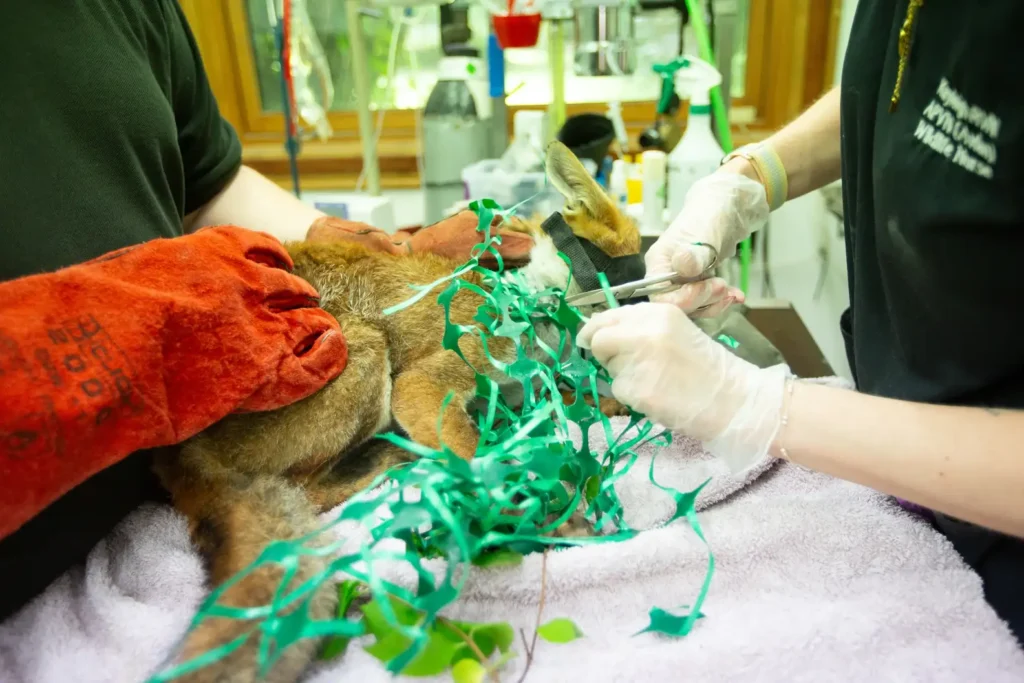
Mike swiftly transported the young fox to WAF’s animal hospital, where the brave cub underwent an urgent procedure to remove the entangling netting. Fortunately, the surgery was a success.
“The youngster was admitted to the hospital, where the remaining netting was carefully removed,” WAF reported. “Given how tightly the netting had constricted around his neck, he remains in our care to monitor for any potential ligature wounds that might develop.”
The team at WAF showered the fox with love and meticulous care during his recovery. After a few days of rest and observation, he passed his health check with excellent results and was deemed ready to return to his natural habitat.
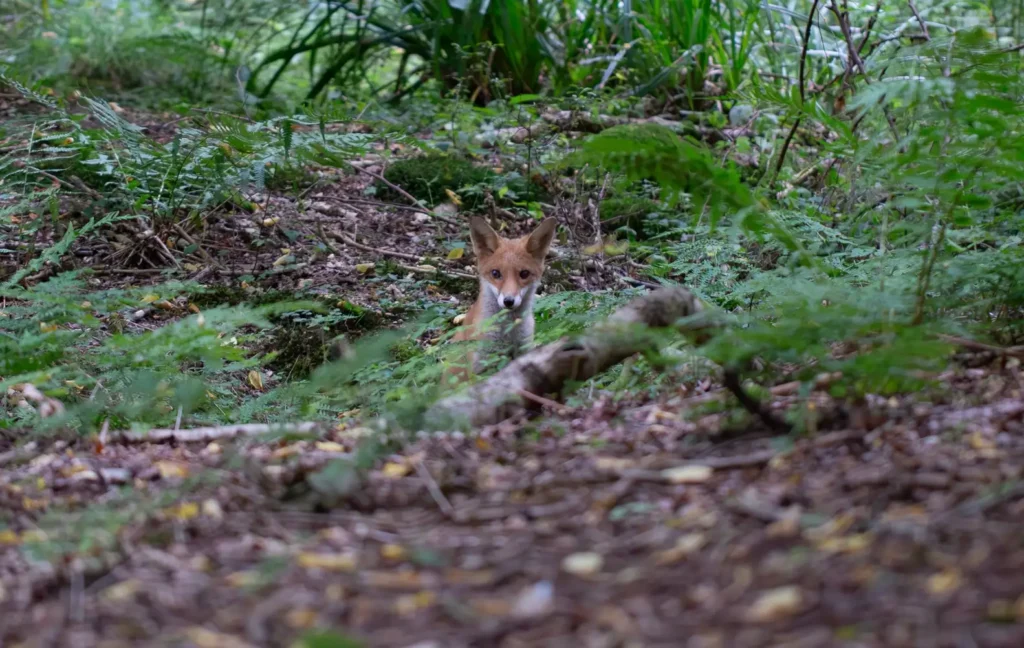
“This little one was released back to his territory just a week after arriving,” WAF shared in a Facebook comment. Their swift action and dedication ensured a successful recovery and a happy ending for the resilient young fox.
Thanks to the quick and effective response from the WAF team, the young fox was rescued just in the nick of time. Unfortunately, cases like this are not uncommon for them, as the fox population in the UK continues to expand beyond traditional countryside areas.
As one of Britain’s most beloved mammals, foxes are frequently seen in both rural and urban settings. According to the UK’s RSPCA, “Foxes are often found living in towns and cities where houses feature large, enclosed gardens. There is usually an abundance of food and ample shelter, such as under sheds or decking. Even urban areas with fewer open spaces or smaller gardens can still support a population of foxes.”
This adaptability to various environments makes foxes a common sight across the country, but it also means they often encounter hazards like plastic waste and other dangers in both rural and urban areas.
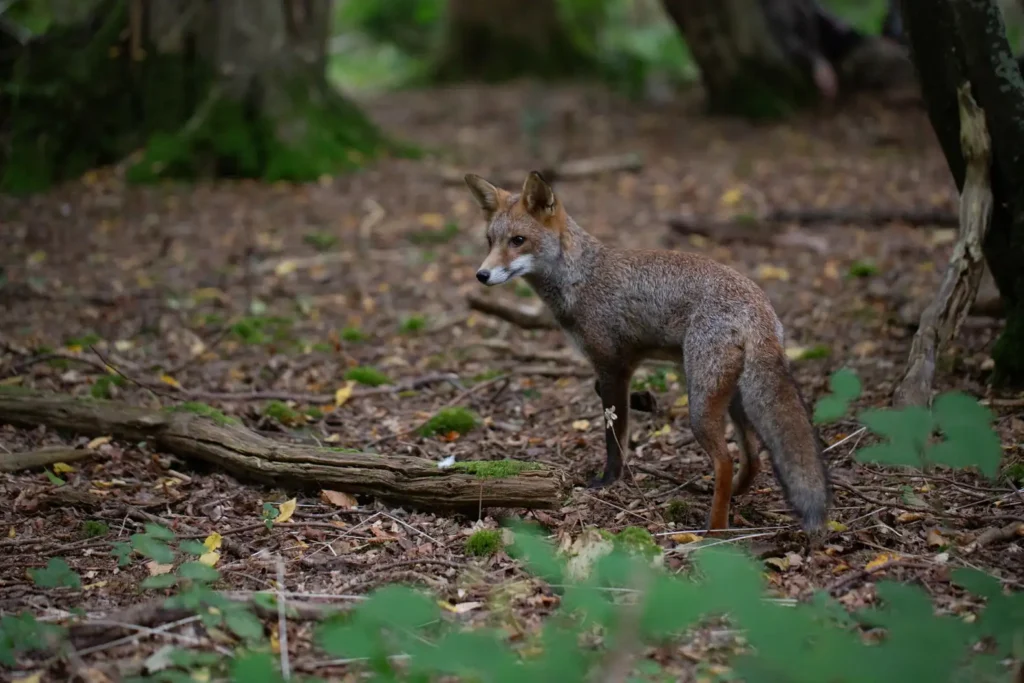
As the fox population expands in and around the UK’s busiest cities, the risks faced by young foxes, like the one recently rescued, are on the rise. While communities are working on strategies to coexist with these furry neighbors, WAF emphasizes the importance of taking preventive measures to avoid such injuries.
“With us and many of our wildlife center counterparts reporting similar cases, it’s crucial to understand how easily these situations can be prevented,” WAF stated. “By properly disposing of waste, removing or securing sports netting, and being mindful of our wildlife neighbors, you can make a significant difference and help save lives.”
These simple actions can greatly reduce the chances of wildlife becoming entangled in hazardous materials, ensuring a safer environment for all.
